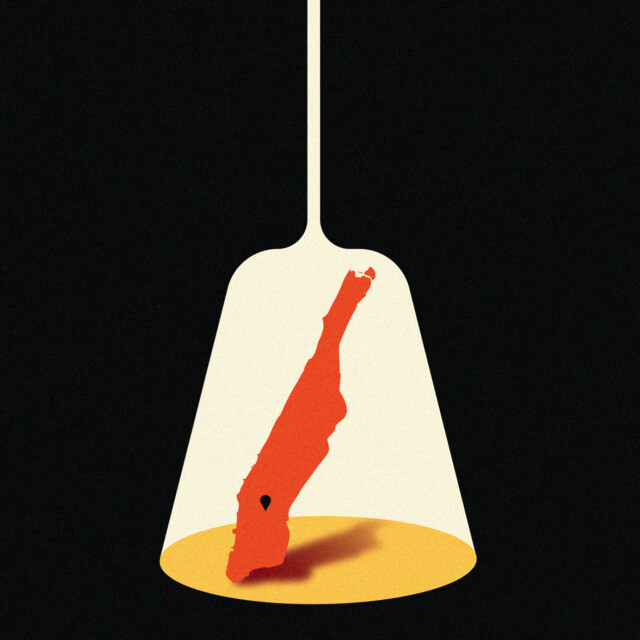On a recent night in May, Charles Joly, the noted Chicago bartender, was in New York. He strolled into the Bronze Owl, a new cocktail bar on West 33rd Street near Broadway recently opened by the Hospitality Department restaurant and bar group. It’s a short walk from the Virgin Hotel at 30th Street and Broadway, where, later this summer, Joly is planning to open his first New York venture, The Riff Raff Club. Bronze Owl bar director Max Green was behind the bar. Green and Joly have known each other for nearly a decade.
“I talked with Charles about doing a sort of bar passport for the area,” Green says, envisioning a document listing bars in the area that customers could have punched with each different bar visit.
A NoMad bar passport is an idea whose time has suddenly come. For much of the cocktail renaissance of the past 20 years, the neighborhood — which is generally believed to be bordered by 25th Street to the south, 30th Street to the north, Sixth Avenue to the west and Madison Avenue to the east — has been underserved in terms of cocktail bars. If cocktail lovers came to the area, it was to visit the famous trio of bars inside the NoMad Hotel (The NoMad Bar, Elephant Bar, and Library Bar) all of which sadly closed during the Covid-19 pandemic.
But in the past year, the neighborhood has seen a flurry of new drinking establishments. In addition to the Bronze Owl, there is the Portrait Bar inside the Fifth Avenue Hotel, at the corner of Fifth Avenue and 28th Street; Tusk Bar, inside the Evelyn Hotel, on 27th Street between Fifth and Madison Avenues; NoMad Tea Parlor at the corner of Fifth Avenue and 28th Street; and George Bang Bang, a speakeasy-style bar that is accessed through the Korean restaurant Okdongsik, on 30th Street between Fifth and Madison Avenues.
They join the already up-and-running class of 2022: Shinji’s, the luxe molecular mixology den just outside the NoMad borders, on nearby 20th Street between Fifth and Sixth Avenues; Ivory Peacock, a grand gin-focused cocktail bar that opened on West 26th Street near Sixth Avenue; Apotheke NoMad, a second location of the longstanding Chinatown cocktail bar, at the corner of 26th and Broadway. Just across the street from the latter two is longtime neighborhood standard bearer, The Flatiron Room.
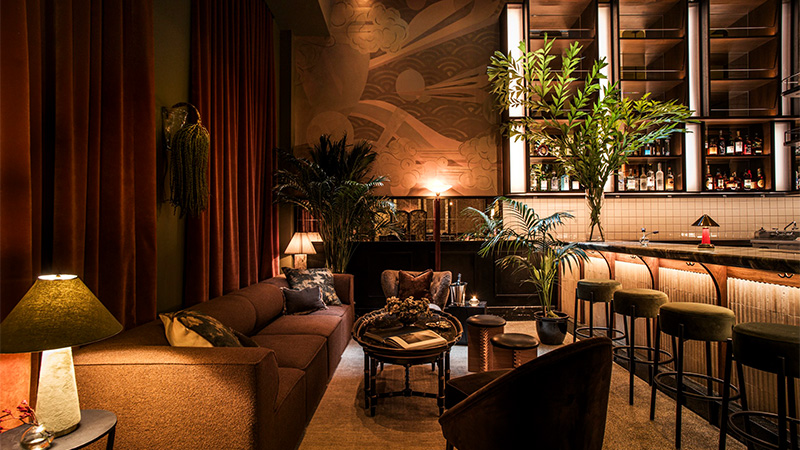
But wait, there’s more. Due to open before the end of the summer is Joly’s Riff Raff Club; and the second coming of Experimental Cocktail Club, the Paris-based cocktail bar chain, on 24th Street between Fifth and Sixth Avenues. (A previous iteration, on Chrystie Street, closed eight years ago after a four-year run.) The old NoMad Bar space on West 28th Street near Broadway, meanwhile, has been taken over by the Little Ned, run by veteran English cocktail bartender Chris Moore.
Not enough? The Eventi Hotel’s Back Bar, located at the corner of West 30th Street and Sixth Avenue, is currently hosting an extended revival of Blacktail, the Cuban-themed cocktail bar from the Dead Rabbit team that used to sit at the southern tip of Manhattan.
New York hasn’t seen a concentrated cocktail-bar explosion like this since the East Village gave birth — all within a few years in the late aughts and early 2010s — to Death & Co., PDT, Mayahuel, Bourgeois Pig, Summit Bar, Louis 649, The Beagle, Amor y Amargo, and Vandaag.
“It definitely feels like it’s developing,” says Little Ned’s Moore. “The shift in the last two years has felt like a sea change across the food and beverage spectrum, and with major new hotels coming to the area it feels like a rising tide. I think guests are definitely seeing the difference.”
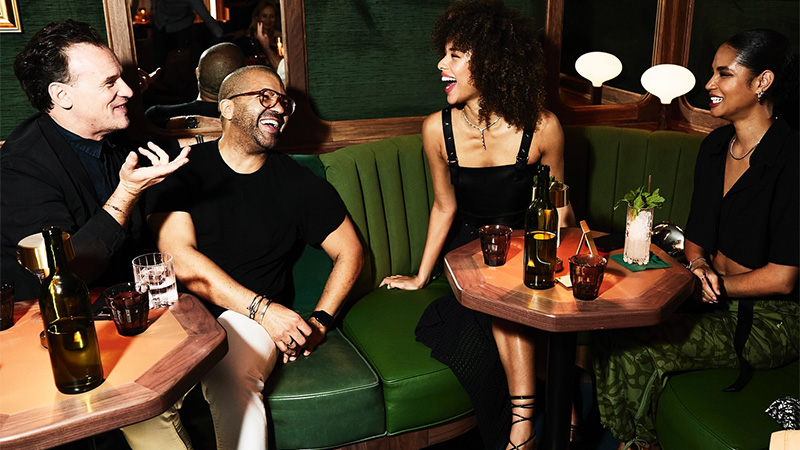
“There was clearly a void in the last couple of years left by the NoMad’s exit in our area,” adds Tristan Brunel, bar director of Tusk Bar, “but now there have been two to three openings just in the last six to eight months, as well as a few earlier bars from last year. I have heard of a couple more on the horizon, which is super exciting.”
Many of the new bar owners still feel the loss of the NoMad, which created a drinking vacuum in the area. Their customers, too, have internalized the NoMad’s absence. In many ways, the group of new bars, intentionally or not, has filled that void.
“People still need to realize that you can make a night out of this area. It can be a destination not just for one place, but for four, five, or six.”
“I would never try to take away from the NoMad in any regard, but we have proximity,” says Green, whose Bronze Owl is the most northerly of the new collection of bars. “There are a lot of people in this area that miss that kind of bar. If I can get 10 percent of the people who used to go to the NoMad, that would be great.”
Darryl Chan, bar director of The Portrait Bar, has definitely hosted a few former regulars of the NoMad. More than perhaps any new bar in the city, The Portrait Bar’s English study-like aesthetic echoes that of the NoMad’s stately Library Bar. “Because we have that library setting, people will comment on that,” he says. “When we first opened, people said, ‘You’re going to fill their shoes.’ Those are some big shoes to fill. People are just happy that there is a cocktail bar nearby with a similar aesthetic.”
Green thinks there is still much work to do before bar-goers are fully aware of the many drinking options in the vicinity.
“People still need to realize that you can make a night out of this area,” he says. “It can be a destination not just for one place, but for four, five, or six.” (This is easier than you might imagine. Little Ned, The Portrait Bar, and NoMad Tea Parlor, for example, are all actually on the same block, mere yards from one another.)
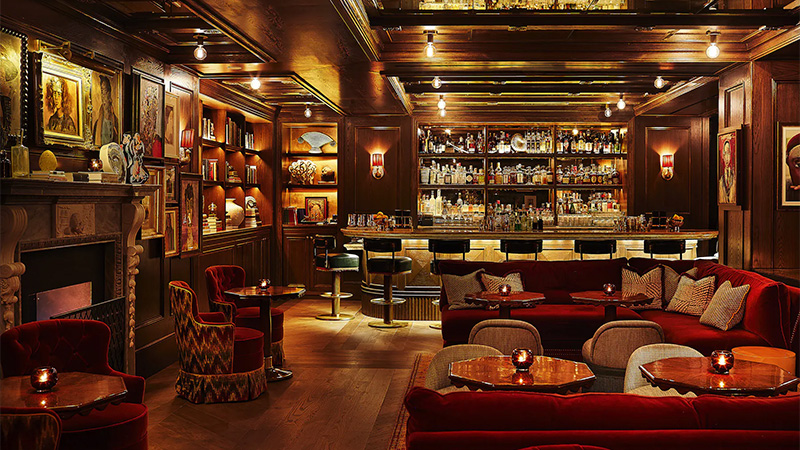
Jonathan Adler, owner of Shinji’s, agrees that the neighborhood hasn’t quite yet blossomed into a cocktail destination area in most people’s minds. “But that’s only because they don’t consider all the options,” he says.
“It comes in waves. Of course we want people to stick around. We never see competitors as competition; the more bars, the better. I want our area to become a destination.”
Brunel is more sanguine. He thinks the shift in perception has already taken hold.
“We definitely get a fair number of folks, especially on the weekend, that are in the area to hit two to three bars in our neighborhood specifically,” he says. “It’s getting more apparent as time goes on, and I believe it will only continue to grow as the bar is raised across the board.”
Tommy Tardie’s Flatiron Room, which has been a presence in NoMad for 12 years, was once the only game in the neighborhood for quality mixed drinks and spirits. But he welcomes the new members of the community.
“People come and go,” he says. “It comes in waves. Of course we want people to stick around. We never see competitors as competition; the more bars, the better. I want our area to become a destination.”
Moreover, Tardie sees the drinking scene in NoMad as more inclusive than you might see in other concentrated cocktail neighborhoods such as the East Village, West Village, or Lower East Side. His customer base, which he terms “pan-New York,” includes not only people from the immediate area, but all over Manhattan and the outer boroughs. And, because many of the new bars are situated in posh boutique hotels or private clubs, the atmosphere is often a bit more adult.
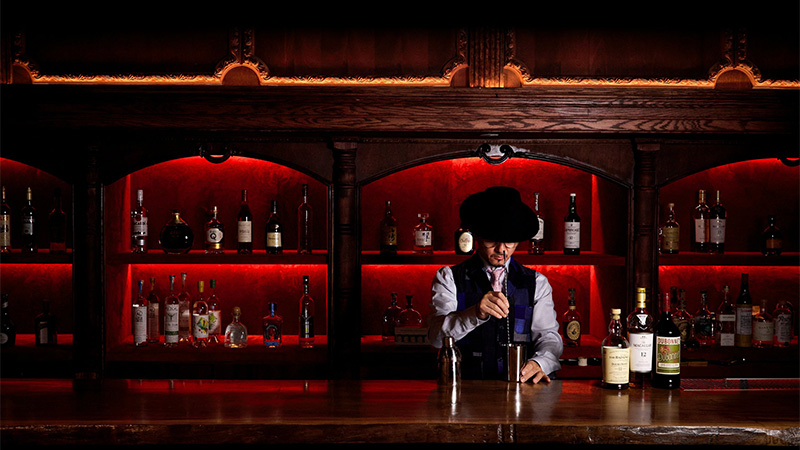
“They’re definitely more affluent,” says Chan. “It’s a different crowd for sure. But rich people drink and they frequent places.”
The location also lends itself to a decent post-work crowd, whereas other areas of the city, like Times Square, have thinned out considerably since the pandemic. “Being in NoMad, we have lots of folks that work in design, publishing, as well as wine and spirits professionals due to the many portfolio offices in Flatiron,” Brunel says. “Being in a hotel we are also able to capture an interesting perspective from guests across the globe.”
Brunel believes that every new opening in NoMad helps his cause, and he enjoys recommending nearby bars to guests who may not have them on their radar. “I think it is key that we are able to be ambassadors for the area,” he says.
And ambassadors need passports.
